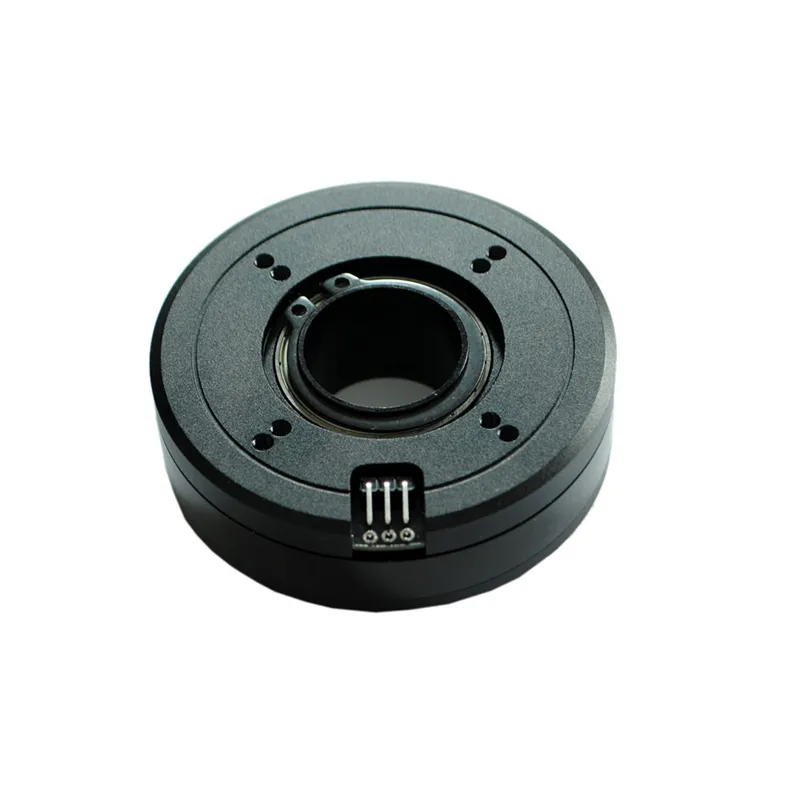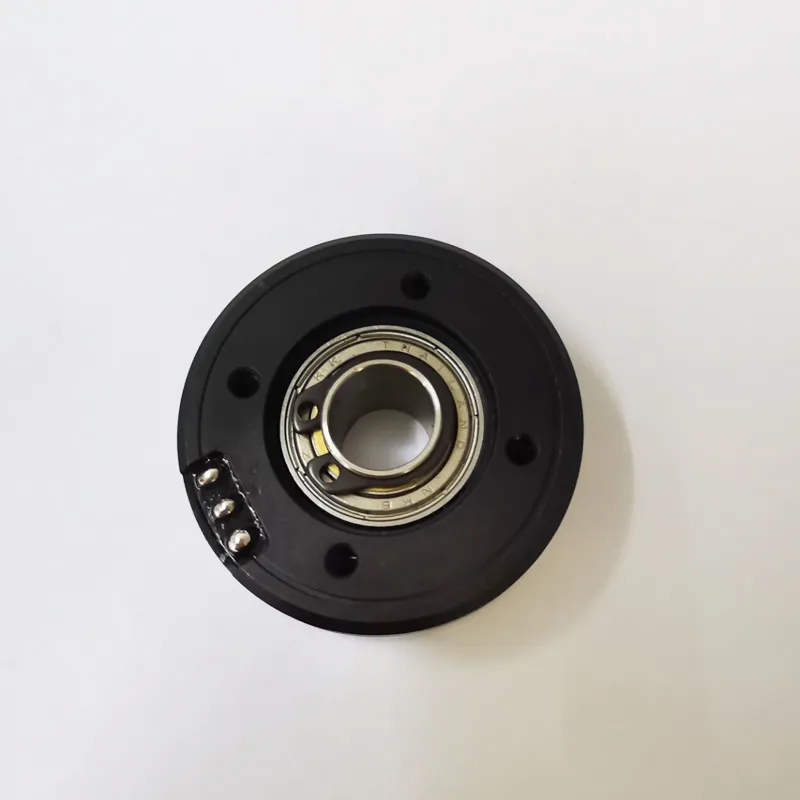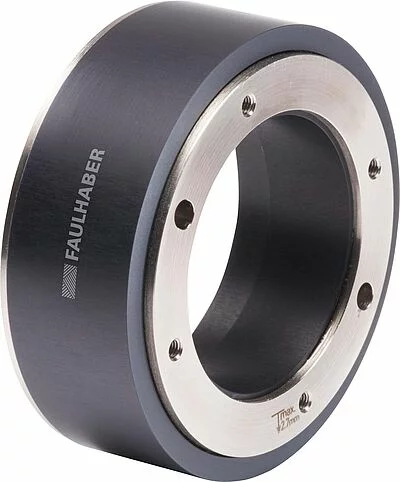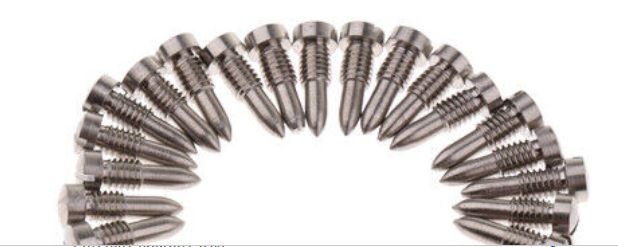Hollow shaft extruder
-
@tombrazier I don't like to load a ball bearing right at the edge (flange), That's why I proposed the roller with the cutting edge in the middle.
It would also help, if you'd add a supporting disk on top of the bearings to prevent them from getting spread apart. -
@CNCModeller So far I've read about aluminum-oxide powder coated or sandblasted rollers, metric screws without any ball bearing, flanged bearings and the guy with the brushless motor uses DIY rollers with a fine pitch rounded thread.
A knurled roller (with a criss-cross pattern?) wouldn't cut a thread in the filament. That's similar to the failed sandpaper-rollers, I guess. -
-
@o_lampe said in Hollow shaft extruder:
So far I've read about aluminum-oxide powder coated or sandblasted rollers, metric screws without any ball bearing, flanged bearings and the guy with the brushless motor uses DIY rollers with a fine pitch rounded thread.
A knurled roller (with a criss-cross pattern?) wouldn't cut a thread in the filament. That's similar to the failed sandpaper-rollers, I guess.That's pretty much what I think has been tried so far as well. With the contact area on the 1.75mm filament being quite small due to the radius of curvature of the filament, I suspect any knurling that might work would have to be very fine. I did try roughening the surface of the bearings with sandpaper and that produced far too little friction to be of use.
The threaded rod, by the way, is equivalent to putting the bearings at a cant angle.One or other can be used or, as with the BLDC one, some combination.
I don't like to load a ball bearing right at the edge (flange), That's why I proposed the roller with the cutting edge in the middle.
Hmm, I had not thought of that. I wonder whether there is or isn't any effect at play here.
I found this guy who forked the project. He uses a smaller brushless motor and added a quick-release system for filament change. Last commit was one year ago, but still a work in progress.
A reliable quick release would be cool for the VDE-100.
-
@o_lampe it was mainly to spark some ideas.
A possibility with this type of design could be to flip it around with the BLDC on top and then use a larger bore where you get some insulating air around the filament. A open style BLDC would also have more surface area to dissipate heat compared with a enclosed stepper.
Quick look gave me these two:
https://www.aliexpress.com/i/4001147807182.html
Outer diameter : 68mm
Bore : 22mm

https://www.aliexpress.com/i/33008455482.html
Outer diameter : 40mm
Bore : 10mm

With a planetary reduction gearbox might be possible to use a higher rpm motor (more volts & RPM but lower amps), but not too good myself at calculating forces for those things and how much weight that would add. (igus plastic gears?)If sticking with steppers there are some larger-bore steppers out there too. Found this one but without pricing.
https://www.faulhaber.com/en/products/series/dm66200h/

-
@pakar I don't think, the center hole would need to be bigger than 4mm. Then we can fit a common 4x2 PTFE tube as insulation. Same as with most hotends I know.
I'm not against BLDC motors, they run super smooth and very silent. But we'd need a better interface-board than the O-Drive Arduino-shield@dc42 would it be possible to integrate BLDC support on a small Duet3 board? With a 3x H-bridge as driver, it could be a simple RP2040, I guess.( with the encoder on a state-machine)
-
I thought of another way to support the rollers and my other hobby came handy:
Saxophon repair kits come with these screws.

The rollers would have center holes matching the shape of the screw tip. Voilá, low friction and precise guidance.
-
@o_lampe i did exactly that. Counterbored the stepper shaft and inserted a thinwalled ptfe tube.
-
@tombrazier no need for apologies, those are very informative pictures! I'm on a short vacation right now, but when I'm back I'll try to reproduce the same results on the ingenuity. Curious about the difference!
-
@o_lampe
Option for the o-dive.https://github.com/simplefoc/Arduino-FOC
Mini (<3A board)
https://www.simplefoc.com/simplefoc_mini_product_v1
Available for €12 from https://www.simplefoc.com/simplefoc_mini_product_v1 -
@pakar That's cool. Ordered two right away. Maybe I can finish my RC-balancing bot with these.
-
@o_lampe simplefoc is pretty good, I've been tinkering with them for a while. Definitely worth a try.
-
@CNCModeller I tried to find a tutorial, how to wire the miniFOC board or at least a legend, what all the input pins are. But the github Wiki contains only one sentence: welcome to the Wiki
Most information sounds more like a sales promotion to me.
Did you find something useful? -
@o_lampe do you mean this board? https://docs.simplefoc.com/mini_connect_hardware
-
Just found the
perfect motor/encoder combo: the makerbase SF2804
It's the same motor as FaqT0tum uses in his roller-extruder, but with simpleFOC encoder interface.//edit
forget it, the encoder wouldn't let the filament pass through.... -
@o_lampe I've been tinkering with these...
https://docs.simplefoc.com/arduino_simplefoc_shield_showcase
I've also got 10 of these for a higher power project
https://community.simplefoc.com/t/simplefoc-power-shield-d-beta/2686
They're pretty much plug and play with the associated Arduino examples in the library.
Hope that helps...
-
34g motor (€4).. but torque might be an issue on these at low rpm.
https://www.aliexpress.com/item/1005004901867829.html- a >500ppr encoder with a hole for the shaft.
simplefoc lists the AMT103-V from mouser (€20) that supports up to 2048ppr and is 14-20g depending on selected model.
or
110g motor
https://www.aliexpress.com/item/1005004516876627.html
with hall-sensor, but unsure about what accuracy you can get with the built in hall-sensors. - a >500ppr encoder with a hole for the shaft.
-
@pakar The 34g one has an outer diameter of 33mm. I think this might actually be small enough to mount on a Voron tool head. That's been a bit of a background preoccupation for me. If you want a small and light extruder, then the obvious place to want to mount it is a Voron. So it would be good if it did fit.
-
@tombrazier said in Hollow shaft extruder:
The threaded rod, by the way, is equivalent to putting the bearings at a cant angle.
I compared the VDE100 and the screw-roller extruder. The cant angle of the screw roller seems bigger, but the pitch is only 0.8mm vs 1.5mm of the VDE100. How does that work?
-
@tombrazier said in Hollow shaft extruder:
the obvious place to want to mount it is a Voron. So it would be good if it did fit.
It definitely fits on the smart effector.
Re: torque
FaqT0tum listed the same motor with 100kV ( turns/volt)
But others have 160 or 270kV, which are the hotter versions.
Will be interesting to see, which works best with the simpleFOC-mini at 24V, since it has no current sensors.